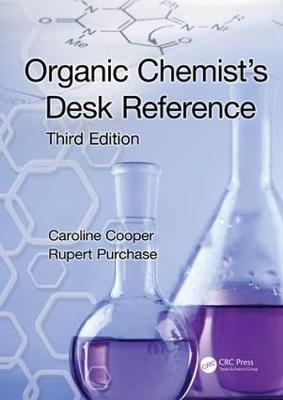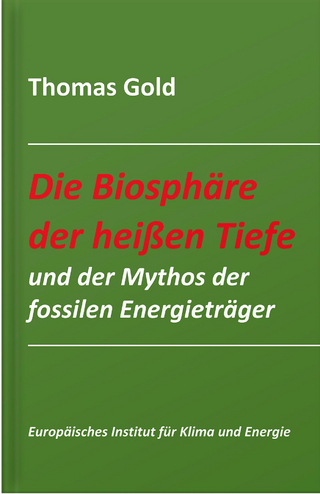
Organic Chemist's Desk Reference
Crc Press Inc (Verlag)
978-1-4987-3401-1 (ISBN)
Launched in 1995 as a companion to the Dictionary of Organic Compounds, the Organic Chemist’s Desk Reference has been essential reading for laboratory chemists who need a succinct guide to the ‘nuts and bolts’ of organic chemistry — the literature, nomenclature, stereochemistry, spectroscopy, hazard information, and laboratory data. This third edition reflects changes in the dissemination of chemical information, revisions to chemical nomenclature, and the adoption of new techniques in NMR spectroscopy, which have taken place since publication of the last edition in 2011. Organic chemistry embraces many other disciplines — from material sciences to molecular biology — whose practitioners will benefit from the comprehensive but concise information brought together in this book. Extensively revised and updated, this new edition contains the very latest data that chemists need access to for experimentation and research.
Cooper, Caroline; Purchase, Rupert
The Organic Chemistry Literature. Abstracting and Other Current Awareness Services. Principal Electronic Dictionaries. Useful Reference Works and Review Series. Patents, Including Patent Awareness Services. Cheminformatics Companies. Primary Journals. Endnotes. Nomenclature Fundamentals . IUPAC Nomenclature. CAS Nomenclature. Types of Name. Constructing a Systematic Name. Nomenclature of Ring Systems. Ring Systems (General). Bridged Ring Systems. Spiro Compounds. Heterocyclic Ring Systems. Ring Assemblies. Ring Fusion Names. Nomenclature of Individual Classes of Compound. Carbohydrates. Alditols and Cyclitols. Amino Acids and Peptides. Natural Products (General). Steroids. Lipids. Carotenoids. Lignans. Nucleotides and Nucleosides. Tetrapyrroles. Organoboron Compounds. Organophosphorus (and Organoarsenic) Compounds. Azo and Azoxy Compounds. Labelled Compounds. Tautomeric Compounds. Acronyms and Miscellaneous Terms Used in Describing Organic Molecules. Abbreviations and Acronyms for Reagents and Protecting Groups in Organic Chemistry. Glossary of Miscellaneous Terms and Techniques Used in Nomenclature, Including Colloquial Terms. Stereochemistry. The Sequence Rule: R and S. Graphical and Textual Representations of Stereochemistry. Chiral Molecules with No Centres of Chirality. E and Z. The D,L-System. Descriptors and Terms Used in Stereochemistry. Graphical Representation of Organic Compounds. Zigzag Natta Projection. Stereochemistry. CAS Numbers, InChI, and Other Identifiers. CAS Registry Numbers. InChI. Simplified Molecular Input Line Entry System (SMILES). Molecular Formulae. The Hill System. Chemical Abstracts Conventions.Checking Molecular Formulae. Chemical Hazard Information for the Laboratory. Hazard and Risk Assessment. Physical and Reactive Chemical Hazards. Health Hazards. Handling and Storage of Chemicals. Hazardous Reaction Mixtures. Disposal of Chemicals. Solvents. Peroxide- Forming Chemicals. Further Literature Sources. Spectroscopy. Infrared Spectroscopy. Ultraviolet Spectroscopy. Nuclear Magnetic Resonance Spectroscopy. Mass Spectrometry. Introduction. Ionisation Techniques and Mass Spectrometer Systems. Interpreting Mass Spectra and Molecular Mass. Sample Introduction and Solvent Systems for Electrospray Mass Spectrometry. Common Adducts and Contaminants in Mass Spectra. MALDI Matrices. Fragment Ions and Neutral Losses. Natural Abundance and Isotopic Masses of Selected Isotopes and Nuclear Particles. Glossary of Abbreviations and Terms Commonly Used in Mass Spectrometry. Crystallography. Introduction. Definitions.Crystallographic Point Groups. Space Groups. Reciprocal Lattice. Examples of Organic Crystals. CIF Data Format. Bragg’s Law and the X-Ray Spectrum. Crystal Specimen Preparation for X-Ray Analysis. Chromatographic Chiral Separation. Types of Molecular Interactions. Diastereomeric Compounds and Complexes. Chiral Mobile Phases. Chiral Stationary Phases. Laboratory Data and SI Units. Solvents. Buffer Solutions. Acid and Base Dissociation Constants. Resolving Agents. Freezing Mixtures. Materials Used for Heating Baths. Drying Agents. Pressure-Temperature Nomograph. SI Units. Languages. A German-English Dictionary. Russian and Greek Alphabets. SI Units. Index
| Erscheinungsdatum | 17.08.2017 |
|---|---|
| Zusatzinfo | 96 Tables, black and white; 215 Illustrations, black and white |
| Verlagsort | Bosa Roca |
| Sprache | englisch |
| Maße | 178 x 254 mm |
| Gewicht | 521 g |
| Themenwelt | Naturwissenschaften ► Biologie ► Biochemie |
| Naturwissenschaften ► Chemie ► Organische Chemie | |
| ISBN-10 | 1-4987-3401-4 / 1498734014 |
| ISBN-13 | 978-1-4987-3401-1 / 9781498734011 |
| Zustand | Neuware |
| Informationen gemäß Produktsicherheitsverordnung (GPSR) | |
| Haben Sie eine Frage zum Produkt? |
aus dem Bereich


